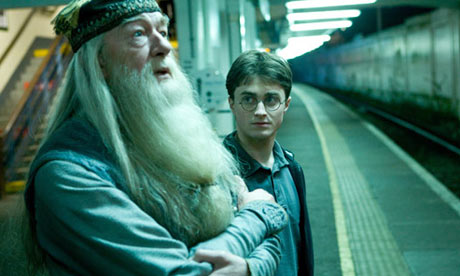A gourmet parable.
Even before I became a
full-fledged cinephile, I was already more than aware of the "The Cook,
the Thief, His Wife & Her Lover's" notoriety as a taboo-breaking
motion picture that navigates around the question of whether or not films with
such abhorring themes can really pass as adequate art. For films like this,
audience polarization is all but given. But with the history of cinema itself
to finely attest and creations like "Pink Flamingos" and "Last
Tango in Paris" as lasting proofs, only time can really tell if whether or
not thematically questionable films may dwindle into obscurity or shine ever
brighter. In "The Cook, the Thief, His Wife & Her Lover's" case
and the two other aforementioned films, it's definitely the latter. Personally,
only a few films have simultaneously left me in both revolting disgust and
stunning awe; count this great, great film as one of the handfuls.
Directed by the subversive
British filmmaker Peter Greenaway, "The Cook, the Thief, His Wife & Her
Lover" is a poetic shock tale about infidelity, ruthlessness and revenge
with a gourmet twist. Anchored by Michael Gambon's intensely frightening (yet
also comedic) performance as the gangster cum restaurant owner Albert Spica and
Helen Mirren's understated turn as his wife Georgina, the film often takes on a
very stagy quality fitting of its highly surrealistic tone. Together, they have
both showcased what I think are the best performances that I've seen in quite a
while.
Right now, fresh from seeing
Michael Gambon's wicked portrayal as Mr. Spica, it's really just quite hard to
imagine that the very same actor has also more than convincingly played the
post-Richard Harris Dumbledore in the Harry Potter film series. The same goes
for Helen Mirren, who has just disappeared into the role of the very sensual
Georgina that it's quite a tricky mind exercise to muster the fact that she
still has enough acting skills (and insane at that) left to pull off the Queen
of England herself in an Oscar-winning turn many years later.
But aside from the
performances, that which also includes Alan Howard's realistic portrayal of
Georgina's mild-mannered lover and Richard Bohringer's symbolic embodiment of the
defiant chef, much is to be lovingly observed and deliciously absorbed in this
film. One of them, although some may see it as a mere production foot note, is
the exquisitely transitional costume design (done by Jean Paul Gaultier, whom,
weird enough, I have first heard about in "American Psycho"), whose
color-coded elegance contrasts with the film's visual and thematic depiction of
decay. Oh and there's also the set design, which greatly detaches the film from
the organic nature of reality, and the cinematography, an aspect that
exceptionally characterizes the film with an ironic degree of formalism albeit
its relentless display of grotesqueries.
In a nutshell, I think
"The Cook, the Thief, His Wife & Her Lover" can be simply
sufficed as an operatic comedy of bizarre proportions. Yet on one hand, I think
it can also be labeled as a humorously dramatic disembowelment of the
superficiality of modern manners. But then, there's also, as what many has claimed,
the film's supposedly metaphorical attack on Margaret Thatcher's politics.
Though I am sadly quite ignorant of Thatcherism (but I do know of its strict
adherence towards privatization among others), it is really not that hard to
look beyond the surface of the film and unearth its underlying sociopolitical
layer, what with its disturbingly symbolic depiction of the 'ruler' (Albert)
and the 'ruled' (Georgina, the chef and all the other characters).
"The Cook, the Thief,
His Wife & Her Lover", despite of its satirical attack on Britain's
political milieu at the time of its release, is still a timeless achievement in
niche filmmaking, especially in how it has made the bizarre look tasteful and
vice versa. Also, this is the first time that I have seen a film where
infidelity was depicted as if justified, and its perpetrators not as
advantageous offenders but as romantic heroes. Now, if only I can see this on the big screen…
FINAL RATING





